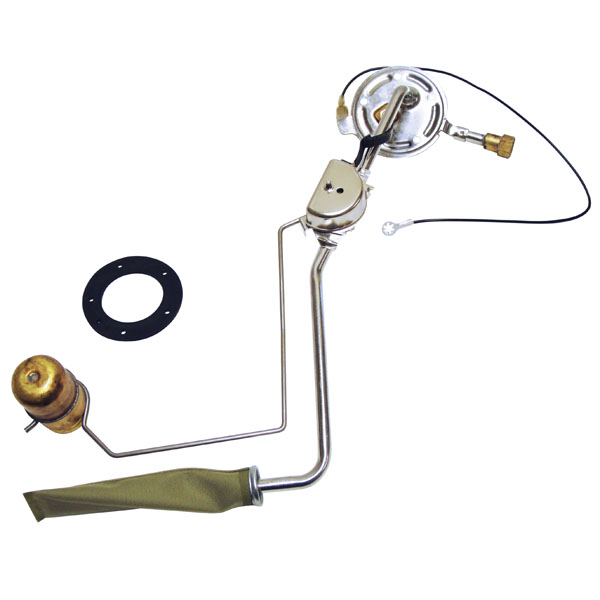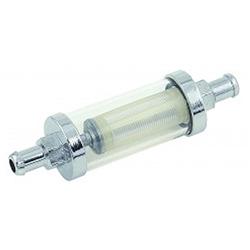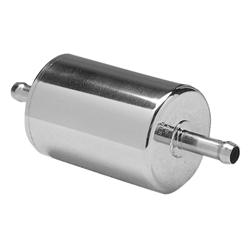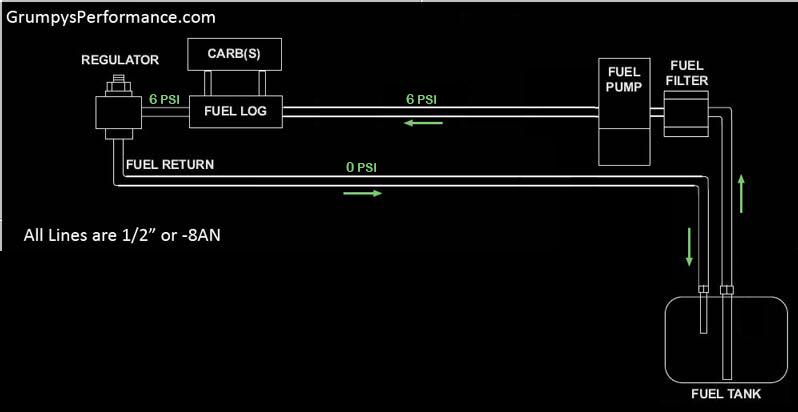allen said:grumpy my original mechanical fuel pump failed on my chevelle, so I removed it, screwed on a block off plate and added a carter electric fuel pump I had sitting on the shelf that looks like this one
http://www.summitracing.com/parts/crt-p74029/overview/
the car runs fine until you accelerate hard, then it breaks up once it hits 2 gear , that to me indicated its running out of fuel, do I need a performance fuel pump rated at 110gph or one rated at 130gph, as I have zero idea what the original mechanical pump was rated at?
theres a great deal of info in the links below, the problem many guys have is in not understanding that they need a return style fuel pressure regulator a decent filter and adequate line sizes once they start boosting power levels well past the original rated power.
a fuel pump might be rated at 110-gph or 130 gph but once you start restricting the intake and exit ports there's a very noticeable drop in the actual effective flow rate, a 130 gallon per hour pump will be needed to flow 55-75 gph, actually reaching the carburetor inlet port,thats required in many cases, once the restrictions and inertial loads in the fuel lines, and filter etc. are calculated, and a return style fuel pressure regulator makes the system pressure and volume far more consistent and dependable, a 3/8" line size is usually adequate up to about 525hp, once you go past that Id strongly advise swapping to 1/2" or AN#8 line size but remember the weak link in the chain, concept, it does you zero good to have 1/2" lines if the interior openings in the adapters, you use on the lines or filter or fuel pump, etc. or the fuel line exiting the fuel tank is a 3/8" or smaller size. and installing a fuel filter that has 3/8" in and out lines thats rated at lets say 60 gph is certainly going to restrict flow regardless of the fuel pump used. I see guys that spend decent cash on a 130 gph fuel pump who then install crappy fuel filters like these, (pictured below) that were never designed for a performance application or hook up a performance engine, they expect to produce 500 plus hp, they built, to the original 5/16" or 3/8" internal fuel line from the tank

only to experience fuel starvation issues , who act clueless as to the potential cause.
if you expect to maintain a solid 500hp or higher engine output level, your going to find that a 3/8" stock fuel line, fuel filter,fuel tank lines and strainer sock assembly is very likely to cause fuel starvation issues under sustained fuel demands at that power level, your also very likely to find the stock fuel pump , won,t keep up with demand

http://www.summitracing.com/parts/mrg-9748/overview/

http://www.summitracing.com/parts/sum-g1512/overview/

you will be amazed at what youll learn reading links[/b]
viewtopic.php?f=55&t=1939
viewtopic.php?f=55&t=5365&p=16067&hilit=inside+fuel+pump#p16067
viewtopic.php?f=55&t=211
viewtopic.php?f=55&t=635
